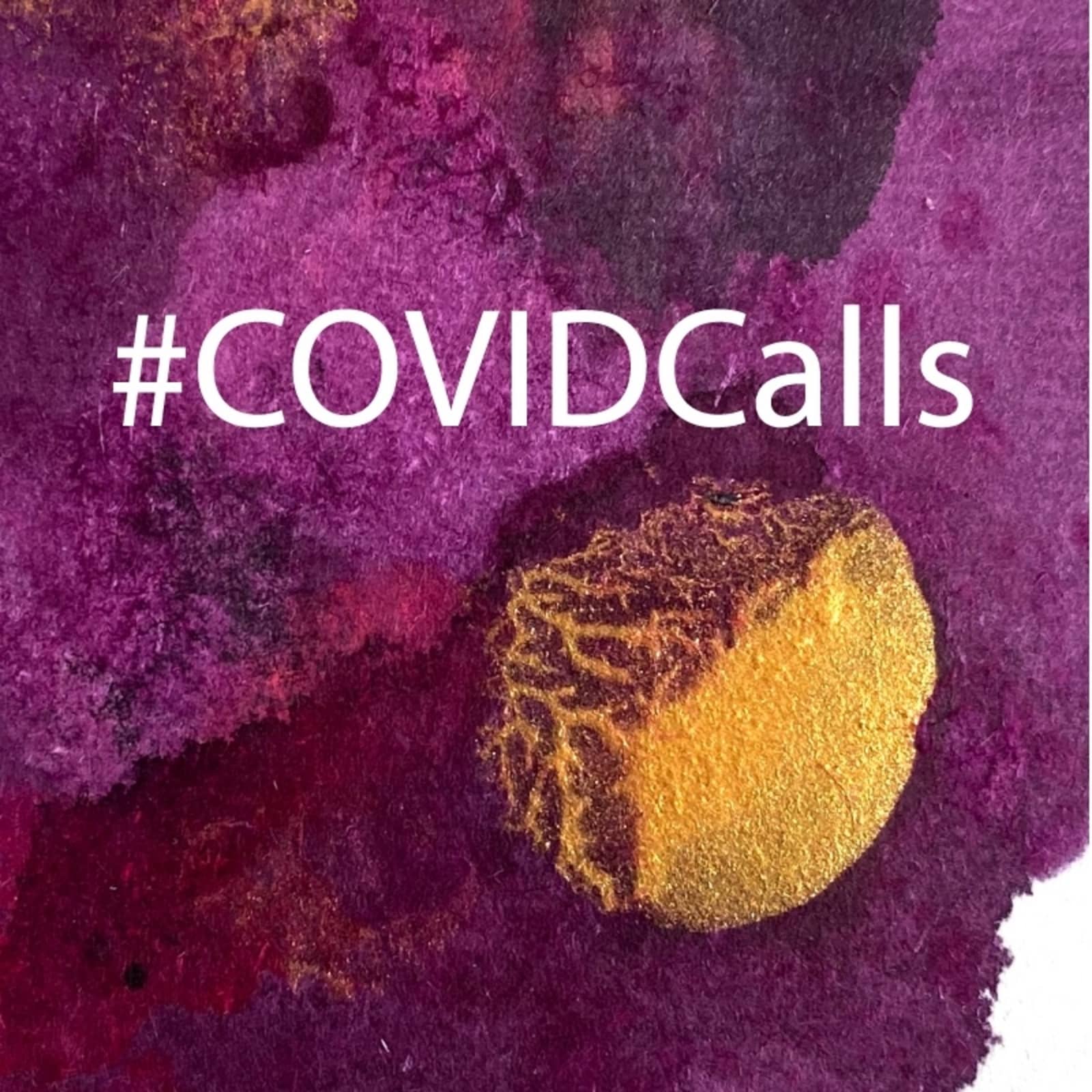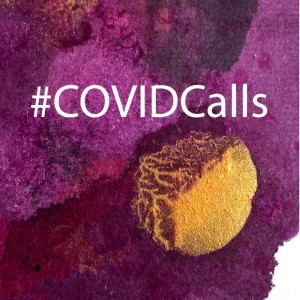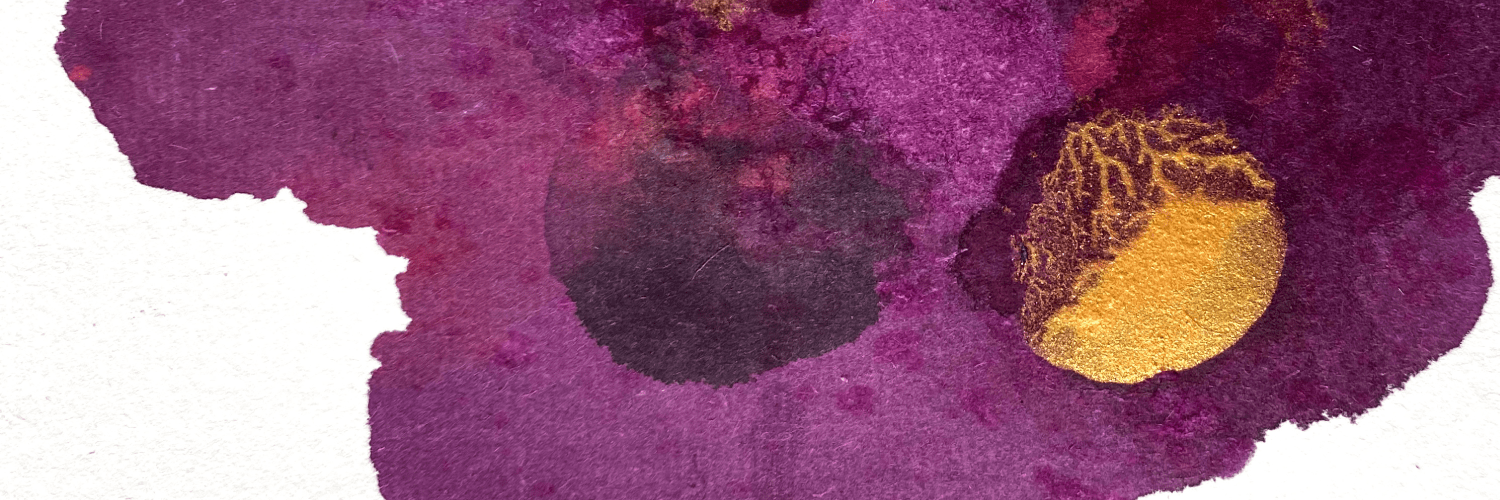
56K
Downloads
504
Episodes
A daily discussion of the COVID-19 pandemic with a diverse collection of disaster experts - hosted by Dr. Scott Gabriel Knowles, a historian of disasters at KAIST in Daejeon, South Korea.
A daily discussion of the COVID-19 pandemic with a diverse collection of disaster experts - hosted by Dr. Scott Gabriel Knowles, a historian of disasters at KAIST in Daejeon, South Korea.
Episodes

Wednesday Mar 24, 2021
EP #245 - 03.24.2021 - Motherhood and Feminism in the Pandemic w/Lyz Lens
Wednesday Mar 24, 2021
Wednesday Mar 24, 2021
Today is a discussion with writer Lyz Lenz author of the new book Belabored: A Vindication of the Rights of Pregnant Women.
Lyz Lenz: Lyz’s writing has appeared in the Huffington Post, The Washington Post, the Columbia Journalism Review, The New York Times, Pacific Standard, and others. Her book God Land was published in 2019, through Indiana University Press. Her second book Belabored , was published in 2020 by Bold Type Books. Lyz’s essay “All the Angry Women” was also included in the anthology Not that Bad edited by Roxane Gay. Lyz received her MFA in creative writing from Lesley University. She lives in Iowa.

Tuesday Mar 23, 2021
Tuesday Mar 23, 2021
Today is a discussion of astrobiology, big science, and the pandemic with astronomer Lucianne Walkowicz
Lucianne Walkowicz is an astronomer at the Adler Planetarium in Chicago and the co-founder of the JustSpace Alliance. Walkowicz studies the ethics of Mars exploration, stellar magnetic activity, how stars influence a planet’s suitability as a host for alien life, and how to use advanced computing to discover unusual events in large astronomical data sets. From 2017-2018, they were the Baruch S. Blumberg NASA/LOC Chair in Astrobiology at the Library of Congress. Walkowicz is the founding director of the LSSTC Data Science Fellowship Program, an initiative to provide astronomy graduate students with training in advanced computing. Walkowicz speaks and writes regularly on topics at the intersection of science and society, which have appeared on TED.com, Slate, The Washington Post, Vox, and more. Walkowicz holds a BS in Physics and Astronomy from Johns Hopkins University, an MS and PhD in Astronomy from the University of Washington, and held postdoctoral fellowships at UC Berkeley and Princeton prior to joining the Adler Planetarium. They are also a TED Senior Fellow and a practicing artist, working in a variety of media, from performance to sound.

Friday Mar 19, 2021
EP #242 - 03.19.2021 - The COVID Grief Multiplier
Friday Mar 19, 2021
Friday Mar 19, 2021
How do we measure the impact of COVID beyond death counts? Today I talk about the grief, loss, and the COVID-19 bereavement multiplier with Ashton Verdery.
Dr. Ashton Verdery is an Associate Professor of Sociology, Demography, and Social Data Analytics at the Pennsylvania State University. His research deals with questions about how demographic and family change affect the health and wellbeing of people in different countries.

Thursday Mar 18, 2021
EP #241 - 03.17.2021 - Pregnancy and Birth in Pandemic Times
Thursday Mar 18, 2021
Thursday Mar 18, 2021
Today I talk about the experience of covid in the care of pregnant mothers and their children with physician and writer Chavi Eve Karkowsky.
Dr. Chavi Eve Karkowsky completed her undergraduate degree at Yale University, followed by medical school at Mount Sinai Icahn School of Medicine in New York City. She then finished internship and residency in obstetrics and gynecology at the integrated program at Brigham and Women's Hospital and Massachusetts General Hospital in Boston, followed by a fellowship in Maternal-Fetal Medicine (MFM). Dr. Karkowsky continues to work as a high risk obstetrics specialist in New York City, where she leads initiatives in outpatient care (during COVID, as well as during non-pandemic times, when they return).She also writes for the lay press, with publications in Slate, the Atlantic, the Washington Post, and elsewhere; her first book, "High Risk: Stories of Pregnancy, Birth, and the Unexpected" (Norton/Liveright 2020) was published this year. She lives with her 4 stir-crazy kids and spouse in NYC.

Tuesday Mar 16, 2021
EP #240 - 03.16.2021 - One Year Anniversary Episode!
Tuesday Mar 16, 2021
Tuesday Mar 16, 2021
Dr. Gigi Kwik Gronvall is a Senior Scholar at the Johns Hopkins Center for Health Security and an Associate Professor in the Department of Environmental Health and Engineering at the Johns Hopkins Bloomberg School of Public Health. Her area of expertise is immunology.
Dr. Esther Chernak. Esther is a professor in the Department of Environmental Health, Drexel University School of Public Health, and has a position in the Drexel University College of Medicine. She is the director of the Center for Public Health Readiness and Communication at Drexel. Prior to joining the Drexel faculty in 2010, Dr. Chernak worked at the Philadelphia Department of Public Health for over 25 years.
Yeonsil Kang is a currently a visiting assistant professor at Drexel University’s history department. She is interested in understanding the intersections of the environment, science/technology, and disasters especially in East Asia. She is working on a project, Mineral Time, Bodily Time: Asbestos, Slow Disaster, and Toxic Politics in South Korea which explores the history and politics of asbestos, the environmental hazard that shaped environmental health policies in South Korea.
Andy Revkin served as strategic adviser for environmental and science journalism at National Geographic Society. Through 2017 he was senior reporter for climate change at the independent investigative newsroom ProPublica. He was a reporter for The New York Times from 1995 through 2009. In 2007, he created the Dot Earth environmental blog for The Times. The blog moved to the Opinion Pages in 2010 and ran through 2016. He is now director of the new Initiative on Communication and Sustainability at Columbia University's Earth Institute.
Felicia Henry is a Ph.D. Student in the Department of Sociology and Criminal Justice at the University of Delaware. Her research interests include race, ethnicity, gender, criminal justice/mass incarceration, social vulnerability and resilience in disasters, and communities. A Licensed Social Worker (LMSW), Felicia received her Master of Social Work degree from the School of Social Policy and Practice at the University of Pennsylvania. Felicia is also a Bill Anderson Fund Fellow
Kristin Urquiza, is the Co-founder, Chief Activist of Marked by COVID. Kristin is a graduate of Yale University and UC Berkeley’s Goldman School of Public Policy where she has a Master of Public Affairs. She is an environmental advocate at Mighty Earth, where she works to hold corporations accountable to their industrial agricultural practices that displace indigenous people from their lands and drive deforestation in places like the Amazon rainforest and beyond. Additionally, Kristin works closely with Liberation in a Generation, a group working to narrow the wealth gap between people of color and white families in the United States within a generation.
Shivani Patel is a 2nd year student at Drexel University studying Finance and Economics. She is a production assistant here at COVID-Calls, helping to connect with guests and also a representative on Drexel's student government, working to voice the concerns of the student body to administration.
Bucky Stanton is a PhD Candidate in the department of Science & Technology Studies at Rensselaer Polytechnic Institute. His dissertation investigates natural and cultural resource extraction in the central Peloponnese of Greece, exploring the history and politics of archaeology, energy and modernity in contemporary Greece and beyond

Tuesday Mar 16, 2021
EP #239 - 03.15.2021 - Cities and Suburbs in the Pandemic
Tuesday Mar 16, 2021
Tuesday Mar 16, 2021
Today I speak with historians Kyle Riismandel and Mary Rizzo about the impact of COVID on cities and suburbs.
Kyle Riismandel is a Senior University Lecturer and the Interim Director of the Law, Technology, and Culture Program in the Federated Department of History at the New Jersey Institute of Technology/Rutgers-Newark. He is a cultural historian of cities, suburbs, media, and technology in recent American history. In addition to teaching courses in those areas, he is the author
Neighborhood of Fear: The Suburban Crisis in American Culture, 1975-2001, a Smithsonian scholars favorite book of 2020.
Mary Rizzo is Assistant Professor of History at Rutgers University-Newark. She is the author of Come and Be Shocked: Baltimore Beyond John Waters and The Wire (Johns Hopkins University Press, 2020) and Class Acts: Young Men and the Rise of Lifestyle (University of Nevada Press). She is also the founder of the Chicory Revitalization Project, which uses the black community poetry magazine Chicory to spur dialogue on place and identity.

Thursday Mar 11, 2021
EP #238 - 03.11.2021 - Poetry, Plastic Bags, and the Pandemic
Thursday Mar 11, 2021
Thursday Mar 11, 2021
Today I speak with the multi-talented poet and teacher Taylor Mali.
Taylor Mali is one of the most well-known poets to have emerged from the poetry slam movement. He was one of the original poets to appear on the HBO series Russell Simmons Presents Def Poetry and was the “Armani-clad villain” of Paul Devlin’s 1997 documentary film SlamNation. His poem “What Teachers Make” has been viewed over 4 million times on YouTube and was quoted by the New York Times’ Thomas Friedman in one of his commencement addresses.
Mali is a vocal advocate of teachers and the nobility of teaching, having spent nine years in the classroom teaching everything from English and history to math and S.A.T. test preparation. He has performed and lectured for teachers all over the world; and in 2012 he reached his goal of creating one thousand new teachers through “poetry, persuasion, and perseverance.” Based on the poem that inspired a movement, his book of essays, What Teachers Make: In Praise of the Greatest Job in the World, is his passionate defense of teachers drawing on his own experiences, both in the classroom and as a traveling poet.
He is the author of four books of poetry, Late Father and Other Poems (Quercus Review Press, 2018) Bouquet of Red Flags (Write Bloody Books, 2014), The Last Time As We Are (Write Bloody Books, 2009), and What Learning Leaves (Hanover, 2002); and four CDs of spoken word.

Wednesday Mar 10, 2021
EP #237 - 03.10.2021 - COVID in West Virginia
Wednesday Mar 10, 2021
Wednesday Mar 10, 2021
Today I speak with historian and podcast host Chris White about COVID in Appalachia.
Chris White is Professor of Latin American History at Marshall University. is a professor of Latin American history. He is the author of The War on Drugs in the Americas Creating a Third World: Mexico, Cuba, and the United States during the Castro Era (New Mexico, 2007), as well as The History of El Salvador (Greenwood, 2008) and A Global History of the Developing World (Routledge, 2013). He is a former Marine, and his research specializes in drugs and epidemics. He also hosts the podcast, "COVID in Appalachia with Chris White.

Tuesday Mar 09, 2021
EP #236 - 03.09.2021 - Immigrants in COVID America
Tuesday Mar 09, 2021
Tuesday Mar 09, 2021
Today I speak with Erika Lee and Maddalena Marinari about their project Immigrants in COVID America.
Erika Lee is a Regents Professor of History and Asian American Studies and Director of the Immigration History Research Center at the University of Minnesota. Recently elected to the American Academy of Arts & Sciences, she is the Vice President of the Organization of American Historians and author of four award-winning books, including, most recently, The Making of Asian America: A History and America for Americans: A History of Xenophobia in the United States. America for Americans won an American Book Award and the Asian/Pacific American Award for Literature Asian/Pacific American Award for Literature. It was also
highlighted by the Washington Post, the New York Times, and the New York Public Library as one of the most important books illuminating the Trump era and informing essential issues in the 2020 election.
Maddalena Marinari is associate professor of history at Gustavus Adolphus College. She has written extensively on immigration restriction, U.S. immigration policy, and immigrant mobilization. Her book Unwanted: Italian And Jewish Mobilization Against Restrictive Immigration Laws, 1882–1965 (2020) explores Italian and Jewish mobilization against restrictive immigration laws from 1882 to 1965. Along She is co-editor, with Maria Cristina Garcia and Madeline Hsu, she is one of the editors of A Nation of Immigrants Reconsidered: U.S. Society in an Age of Restriction, 1924–1965 (2019), an anthology on the impact of immigration restriction on the United States in the twentieth century. She is the co-editor with Erika Lee of a forthcoming special issue of the Journal of American History on the hundredth anniversary of the passage of the Emergency Quota Act of 1921 and the Immigration Act of 1924.

Tuesday Mar 09, 2021
EP #235 - 03.08.2021 - Fukishima and COVID-19: A Memorial Episode
Tuesday Mar 09, 2021
Tuesday Mar 09, 2021
Today is a special memorial episode dedicated to the 10th anniversary of the March 11 triple disaster in Japan: the Great East Japan Earthquake, the tsunami that followed, and the disaster of the Fukushima Daiichi nuclear power plant. My guests today are Sulfikar Amir, Kohta Juraku, Kyoko Sato, & Ryuma Shineha.
Sulfikar Amir is an associate professor of science, technology, and society (STS) and a faculty member in Sociology Program at the School of Social Sciences, Nanyang Technological University, Singapore. He has conducted research on technological nationalism, development and globalization, nuclear politics, risk and disaster, design studies, cities and infrastructures, and resilience. He is the author of The Technological State in Indonesia: the Co-constitution of High Technology and Authoritarian Politics (Routledge, 2012), and the editor of The Sociotechnical Constitution of Resilience: A New Perspective on Governing Risk and Disaster (Palgrave, 2018). Aside from being a scholar, Amir is a documentary filmmaker. His latest film is Healing Fukushima, which chronicles the role and experiences of medical experts in Fukushima in dealing with radiation hazard in the aftermath of the nuclear disaster.
Kohta Juraku is a professor at Tokyo Denki University (TDU), Japan. He has worked on sociological studies of the governance of risky technologies and the social-learning process from major technological failures. Before joining TDU, he worked at the Department of Nuclear Engineering and Management at the University of Tokyo from 2008 to 2012, during which he spent over a year at the Department of Nuclear Engineering, UC Berkeley as a visiting scholar. He received his PhD from the University of Tokyo for his research on the social-decision making process of nuclear and other energy issues. As a sociologist of science and technology, he has conducted participant observation of nuclear experts’ responses to the Fukushima nuclear disaster both in Japan and US.
Kyoko Sato is Associate Director of the Program in Science, Technology, and Society at Stanford University. Her research examines technoscientific governance in Japan and the United States. She is currently co-editing a collective volume (with Soraya Boudia and Bernadette Bensaude Vincent), Living in a Nuclear World: From Fukushima to Hiroshima, an interdisciplinary post-Fukushima reflection on the development of the global nuclear order. She has conducted fieldwork in various areas affected by nuclear technology to examine the dynamics and relationships among global and national nuclear governance, expertise, and democratic citizenship. She is part of Comparative Covid Response, an on-going study on the pandemic response of 16 countries (led by Steve Hilgartner and Sheila Jasanoff). She worked as a journalist in Tokyo before pursuing her PhD in sociology from Princeton University.
Ryuma Shineha is an associate professor at the Research Center on Ethical, Legal, and Social Issues(ELSI Research Center), Osaka University.
His major is Science & Technology Studies (STS) and Science Policy Studies. He received his PhD from Kyoto University in 2011. His current research theme is understanding of agendas on responsible research and innovation (RRI) of emerging science and practice to upstream engagement on these RRI agendas. In addition, after 3.11, he started research of the media ecosystem and social structural issues concerning 3.11with his collaborators.
